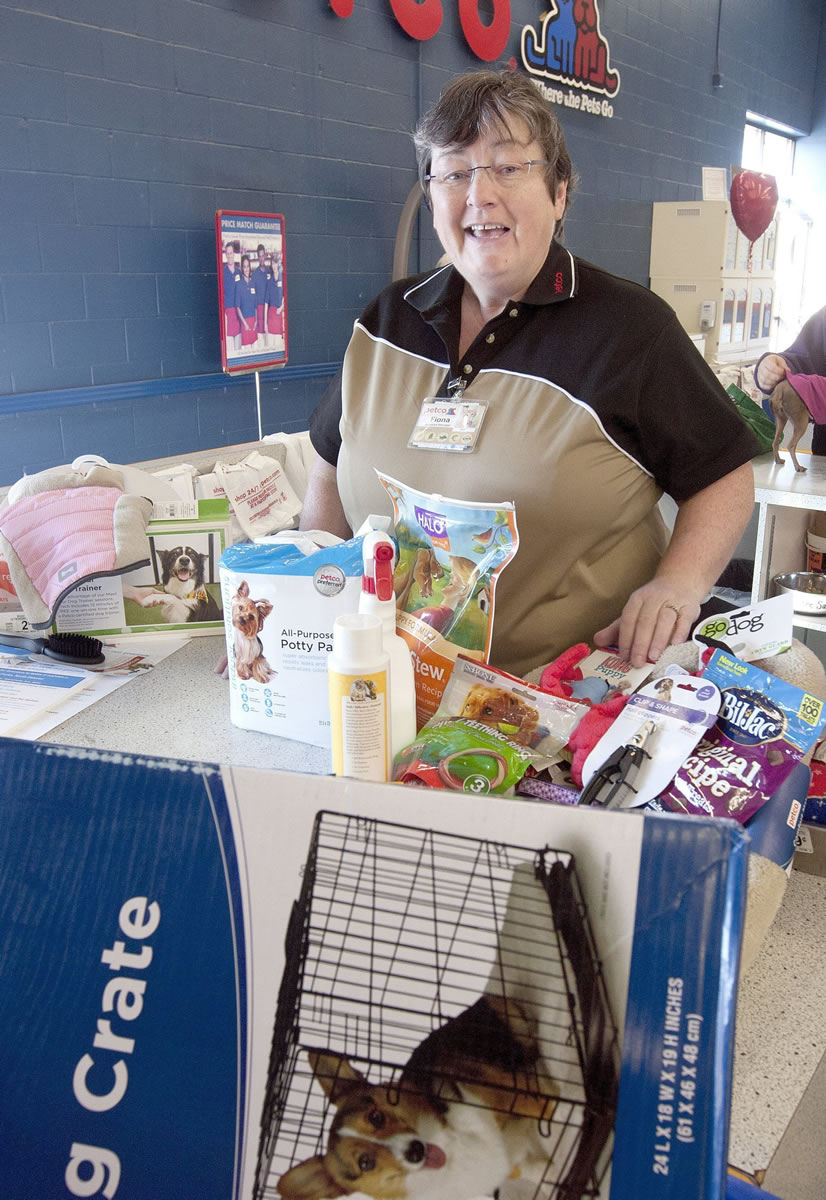GRAND FORKS, N.D. — Unexpected costs. New time commitments. Added responsibilities. Buying a pet is a big decision that shouldn’t be made without prior consideration.
From the monthly costs of food and pet supplies to the time it takes to train a dog, becoming a first-time pet owner can have a big impact on one’s life. Therefore, many factors should be considered before taking the first step.
Veterinarian Carol Hagen, owner of Petcetera Animal Clinic in Grand Forks, N.D., and Fiona Korst, assistant store manager of the Grand Forks Petco, share some advice for first-time pet owners and break down the basics of pet care.
• FIND A PET THAT FITS YOUR LIFESTYLE.
“I think the best kind of pet owner is the type that does research and figures out what kind of (pet) is going to work for them,” Korst said.
Hagen added, “I’d consider how much time you have to spend with the pet.”
If someone is away from their home 18-plus hours a day, a pet isn’t the smartest decision, she said.
Different types of pets also work better for different lifestyles. For instance, a family with young children may want to avoid hyper, snappy dogs that might bite.
“(They) may want to get something that’s maybe a little more durable, not a 4-pound Chihuahua that can break easily,” Hagen said.
Many websites offer dog-matching quizzes to help potential pet owners determine which breed will best suit their personalities and lifestyles. The quizzes ask questions such as “how much time will you be able to devote to exercising with your dog,” “what size is your yard” and “what age children do you have in the home?”
• COST, SUPPLIES.
Potential pet owners also should consider the costs of pet supplies, both initial and recurring.
Korst said the cost of starting supplies for a small breed dog is about $250 to $300. She said large breed dog supplies are about $100 more.
Those price estimates include about 15 different items, from food to chew toys, to the kennel, to the collar and leash. Korst said if necessary, some of the items can be purchased a week or two after having the dog.
“You basically are going to need food, food and water dishes, (and you) definitely want to have a brush,” Korst said.
The same goes for nail clippers. Korst said dog owners should get their puppies used to being brushed and having their nails clipped right from the start, otherwise it can be a nightmare later on.
Another item to think about is puppy stain remover.
“Everybody’s puppy is going to have an accident in the house, so you need a really good stain and odor remover,” she said.
Teething rings are another item that may seem unnecessary, but Korst said, “You want teething rings, unless you want to be the chew toy. When puppies are teething, their teeth are like little needles.”
• VACCINATIONS.
Along with basic supplies, pets also will need vaccinations and checkups, which can add quite a bit to the bill.
“The first year is usually the most expensive because you have a series of three vaccinations typically,” Hagen said. “And you’ve got the office call with each of those exams.”
When someone buys a new puppy or kitten, they should bring it to the veterinarian as soon as possible to get its first checkup and vaccinations.
Hagen said the ideal time is when the animal is about 6 to 8 weeks old. During the first visit, the pet will receive a checkup and vaccinations, which run about $50 for both cats and dogs.
She recommends getting the pet vaccinated at 8 weeks, 12 weeks and 16 weeks.
• SOCIALIZATION.
Aside from the costs involved with owning a pet, it is also a big time commitment.
“They take a lot more exercise and (work) than some people are prepared to give,” Hagen said. Quoting a fellow veterinarian, she added, “A tired dog is a good dog.”
“They get into a lot less trouble if you actively spend time training them and exercising them.”



